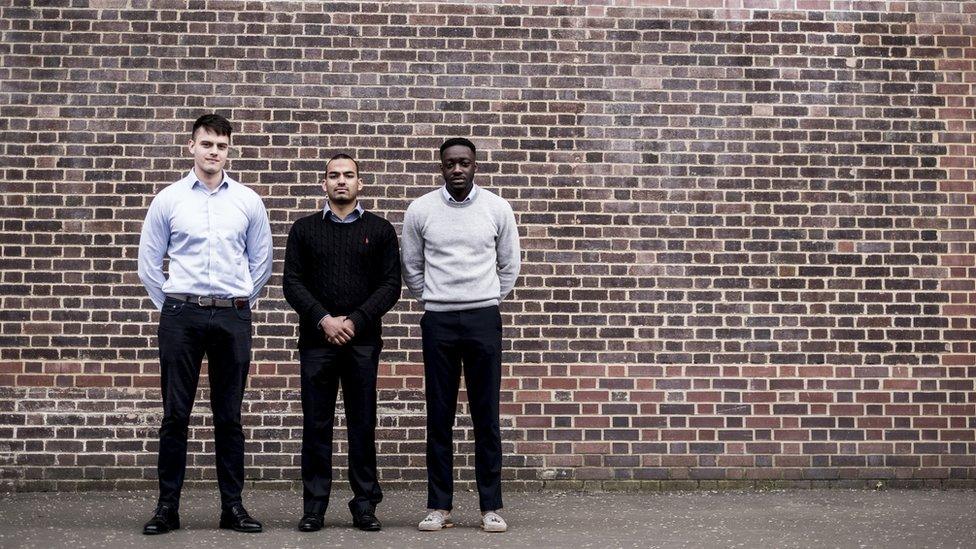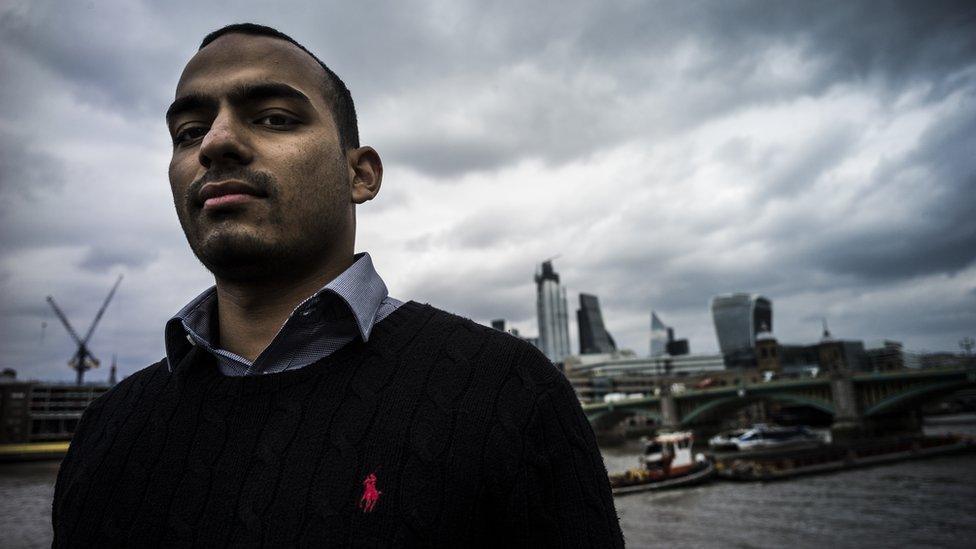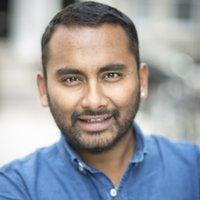How to break into the elite
- Published
Why are smart working-class kids getting passed over for top jobs?
Of all the peculiarities to accompany the ascension of Alexander Boris de Pfeffel - oh, you know the rest - none is more telling than the fact that he should raise to 20 the number of British Prime Ministers who attended a school just south of Slough set up in 1440 for the education of 70 poor boys.
Indeed, Eton and Oxford seems to be the spirit and mixer of choice for the British public. Yet look beyond Number 10 to the other great offices of state and you see a very different story: among the names Johnson, Javid, Raab and Patel you have three children of migrants, two of refugees, and family heritages that are Christian, Muslim, Jewish and Hindu.
Class doesn't mean what it used to. No human society has existed without it in some measure. Whatever it does mean, Britain has made progress, but remains saturated in it. And many of the attempts to temper the worst effects of class privilege fail to grasp the subtle and pernicious ways in which inequality of opportunity endures.

Ben Henderson, Amaan Abdulrahman and Elvis Siaw: trying to break into the elite
I have been researching this for a BBC documentary. Among the most influential academics in this arena is Sam Friedman at the London School of Economics. His work, The Class Ceiling: Why it Pays to be Privileged (written with Daniel Laurison) contains shocking data.
Friedman finds that there is a class pay gap. Those from privileged backgrounds who get 2:2s are still more likely to get a top job than working-class students who went to the same universities and got a 1st. They will, on average, earn around £7,000 a year more.
Those from upper middle-class origins will earn 16% more annually than those from working-class backgrounds - even in the same job. Among Oxbridge graduates, those from privileged backgrounds earn much more than those from working-class backgrounds.
To be a woman or from an ethnic minority can be a predictor of disadvantage. Mix it with class and you have a much bigger disadvantage.
"Black British working-class women have average earnings in top jobs that are £20,000 less per year than those of privileged-origin white men," say Friedman and Laurison.
Behavioural codes
What is going on? Beyond the data, the central insight of the latest academic work is that people from poorer families are held back throughout their careers because they don't abide by the behavioural codes that dominate top professions.
There exists atop our industries certain knowing practices - whether "studied informality" in the media, or knowledge of ski resorts among private equity - which working-class students are excluded from. They don't have the same cultural reference points or etiquette.
They lack polish: that crucial quality of articulacy and presentational confidence that academics have noticed is vital in client-facing roles and which, despite his Falstaffian demeanour, Johnson personifies. This means that even if working-class kids get in, they often struggle to get on.
The whole idea of "access" needs to be re-invented to appreciate that working-class graduates are likely to fall behind even once they've got their foot in the door. They are much less likely, for instance, to find a sponsor, a willing mentor who can open doors.
Of course, getting the job in the first place is harder if you don't have the connections that private education can often give. Those who can rely on the Bank of Mum and Dad can afford to try different options or industries, or busk their way through an internship. Whereas those with families to support, and huge debts to pay, often take the first decent pay cheque.
Just as "access" needs to be re-thought, so too that sainted victim of good intentions: "diversity". A diverse workforce may be morally desirable. But what does it mean? The diversity agenda has, quite understandably, been dominated by groups who are more visible: ethnic minorities or many with disabilities, for instance. These groups can be highly organised and persuasive. But across many professions, the poor have no collective voice. Class membership is much harder to define - and therefore to address.
Meanwhile, since the 1960s, there has been a massive expansion of the higher education sector in Britain. But the growth in graduates has not been matched by a concomitant increase in the number of graduate jobs.
This suggests the story we sell teenagers - that if they get a good degree from a top university they can become a high-flier - is at best incomplete, and at worst, downright deceitful. In the documentary, I get to know Amaan, a remarkable young man from a poor family in Birmingham.

Amaan has a first -class honours degree in Economics from Nottingham University and is studying for a Masters. He has been working at McDonald’s to help pay for his post-grad degree
Amaan was a kickboxing world champion at the age of 17. He was the first in his family to go to university. He got a first in Economics from Nottingham. But Amaan lacks polish, and is crippled by a lack of self-confidence in City environments. He applies for jobs, does well in the early stages, and then - convinced he needs to be something he's not - goes to pieces in interviews. It's painful to watch.
Accepting what he's been told about more education leading to better job prospects, Amaan is doing a Masters at Imperial. He keeps applying to the City - and not getting in.
Today, this former world champion, with a first class degree, is staying with his uncle in Essex and destined shortly to be almost £90,000 in debt. He has, finally, got a job - at McDonald's.
I know it sounds trite, but spending a year on this subject has made me re-evaluate the story I've told myself about my life. I am certainly no proletarian hero; my family, like yours perhaps, ascended the class ladder, so that while we were at times poor, by my school years we were lower middle-class. Classic immigrants, we had more moral than material wealth.
Cambridge University was a passport to an exhilarating new world of social and economic capital. I've had several wonderful sponsors. I came from a stable, ordinary home with extraordinary ambition - something many of our poorest young people cannot lay claim to. And my ferociously disciplinarian parents - ok, Dad - told me to work harder than any colleague.
I may not be posh, but I am exceptionally privileged. At various times, Raab, Patel and Javid have said the same. How I would love for Amaan to meet our new Chancellor. I have a feeling the latter would be up for it, and might get in touch.
What is to be done? I set up a charity to transform the lives of inner city kids in London, by connecting them with elite professionals; but that is a local remedy, not a national plan. Alas, talk of "social mobility" remains a festival of platitudes. Behavioural codes within industries matter more than we thought, and often more than education. Too often, the poor have no lobby. Nearly 80 years after George Orwell - who as Eric Arthur Blair went to Eton but not university - first said it, Britain is still "the most class-ridden country under the sun".
'How to Break Into the Elite' is on BBC Two, Monday 29 July at 2100.
If you're interested in issues such as these, you can follow me on Twitter, external or Facebook, external; and subscribe to The Media Show podcast from BBC Radio 4.
